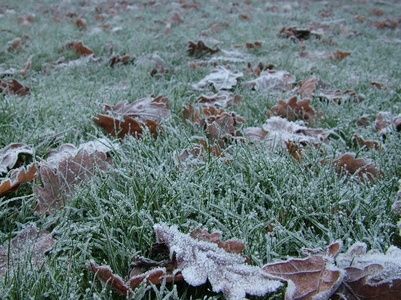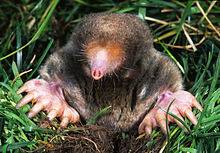READY TO GET STARTED?
REQUEST A FREE ESTIMATE
Fill out the form below or call (888) 466-7849 for a free, no-obligation estimate.
Winter weather can take a toll on your lawn. Cold temperatures, snow, ice, and freezing rain (all of which we have experienced A LOT of recently) can damage lawns. When these weather conditions sit on grass for extended periods of time it can damage, even kill, warmer season grasses. Root damage is also a concern.
When ice forms on cooler season grasses it can make the blade brittle and easy to break. It’s best to limit activity on cooler season grasses when there has been long periods of ice on the ground.
As spring approaches and your lawn starts to green you may notice blotchy areas due to winter kill. This is often in areas that took longer to thaw out due to lack of sunlight or a larger collection in one area of the lawn.
The best way to help restore your lawn after winter damages is to learn from past experiences because history tends to repeat itself. If you had an area that collected more snow because it was in a low lying area then make sure to level out the area so you won’t have the same problem next time it happens. Also, a healthy lawn is much more resilient. Keeping a healthy lawn year around can improve it’s durability during the winter months.
To keep that lawn healthy all year, call Northwest Lawn Care for expert care!
 Just because it’s winter doesn’t mean no yard work. In fact, fall and winter lawn maintenance is vital to a healthy green lawn in the warmer months. Here are some things to consider when caring for your lawn in the winter:
Just because it’s winter doesn’t mean no yard work. In fact, fall and winter lawn maintenance is vital to a healthy green lawn in the warmer months. Here are some things to consider when caring for your lawn in the winter:
Your lawn is supposed to be enjoyed. So whether it’s having cook outs in the summer, raking leaves in the fall, or building snowmen in the winter…take care of your lawn. And for those of you who like to spend your time and effort elsewhere, call a professional lawn care service to take on the task for you. If you’re looking for lawn care in Atlanta call Northwest Lawn Care.
 There’s nothing like jumping in the pool on a hot summer day (well, a day that feels like summer anyways)! So that is exactly what my family and I did on Saturday. We went to my in-laws’ house and jumped right in the pool. We had just begun to cool off and enjoy the water when we noticed we weren’t alone. There was a mole in the pool!!!
There’s nothing like jumping in the pool on a hot summer day (well, a day that feels like summer anyways)! So that is exactly what my family and I did on Saturday. We went to my in-laws’ house and jumped right in the pool. We had just begun to cool off and enjoy the water when we noticed we weren’t alone. There was a mole in the pool!!!
The mole was quickly removed without incident and the fun continued but of course my mother-in-law had lots of questions about what it was doing in her yard, how did it get there, what is was looking for, and how does she get rid of them. So mother in law…this is for you!
Moles are mammals that live underground and occasionally come to the surface. Above ground, they breathe in oxygen and are able to re-use it to survive in low-oxygen environments such as underground burrows. When they surface, they cause damage. Mole damage is divided into two types: burrows and mounds. Burrows occur when moles search for food near the surface, causing soil to be raised in ridges. Mounds are created when moles burrow deep or tunnel under solid objects such as tree roots or sidewalks and push the soil to the surface.
Moles’ bodies and front claws are ideal for digging. Their hands are quite large for their bodies and include an extra thumb and multiple joints in other fingers. There are situations where mole damage is mostly visual, but in other situations they can destroy root systems in your yard, eventually killing the grass.
Damage caused by moles:
The best way to get rid of a mole is by trapping or baiting the runs. The trick to mole extermination is to find the feeding tunnels vs. the travel tunnels. A professional animal removal service provider can distinguish between the two and can humanely remove the moles from your yard. Call Northwest Exterminating for mole removal.
What is the craziest thing you ever jumped in next to?
 There’s nothing like jumping in the pool on a hot summer day (well, a day that feels like summer anyways)! So that is exactly what my family and I did on Saturday. We went to my in-laws’ house and jumped right in the pool. We had just begun to cool off and enjoy the water when we noticed we weren’t alone. There was a mole in the pool!!!
There’s nothing like jumping in the pool on a hot summer day (well, a day that feels like summer anyways)! So that is exactly what my family and I did on Saturday. We went to my in-laws’ house and jumped right in the pool. We had just begun to cool off and enjoy the water when we noticed we weren’t alone. There was a mole in the pool!!!
The mole was quickly removed without incident and the fun continued but of course my mother-in-law had lots of questions about what it was doing in her yard, how did it get there, what is was looking for, and how does she get rid of them. So mother in law…this is for you!
Moles are mammals that live underground and occasionally come to the surface. Above ground, they breathe in oxygen and are able to re-use it to survive in low-oxygen environments such as underground burrows. When they surface, they cause damage. Mole damage is divided into two types: burrows and mounds. Burrows occur when moles search for food near the surface, causing soil to be raised in ridges. Mounds are created when moles burrow deep or tunnel under solid objects such as tree roots or sidewalks and push the soil to the surface.
The best way to get rid of a mole is by trapping or baiting the runs. The trick to mole extermination is to find the feeding tunnels vs. the travel tunnels. A professional animal removal service provider can distinguish between the two and can humanely remove the moles from your yard. Call Northwest Exterminating for mole removal.
What is the craziest thing you ever jumped in next to?
Protecting ourselves and our pets from ticks are a big concern this year. The EPA has put out information through the NPMA on tick bites and Lyme disease prevention:
An ounce of prevention
It is important to know about tick habitats and personal protection techniques because most people are exposed to ticks in residential areas. Here are a few ways to prevent ticks:
1. Keep the lawn mowed to make your property unattractive to ticks. Ticks are found in high grass, yards with trees and shrubs.
2. Keep backyard grasses set back from the woods around a home by eight feet. Place a three-foot wood chip, gravel or mulch border area between grassy edges and tick-prone zones. Ticks prefer moist areas like leaf litter and the edge of woods. Ticks don’t like the sun and wait in shady areas on brush and grasses.
3. Practice personal protection. Personal protection involves using repellents, wearing appropriate clothing and checking for ticks on one’s person, which is the most effective practice of all. In tick habitats, wear long, light-colored pants tucked into socks or boots, and long-sleeved shirts. This keeps ticks from reaching the skin and makes them easier to see. Ticks like places on humans that are warm and moist, most commonly the backs of the knees, armpits, the groin, the scalp, the back of the neck, and behind the ears. Attached ticks should be removed as soon as possible using fine-point tweezers since risk of disease transmission is increased the longer the tick is attached.
To read the full article click HERE.
To protect your home and loved ones from ticks, call Northwest Exterminating.